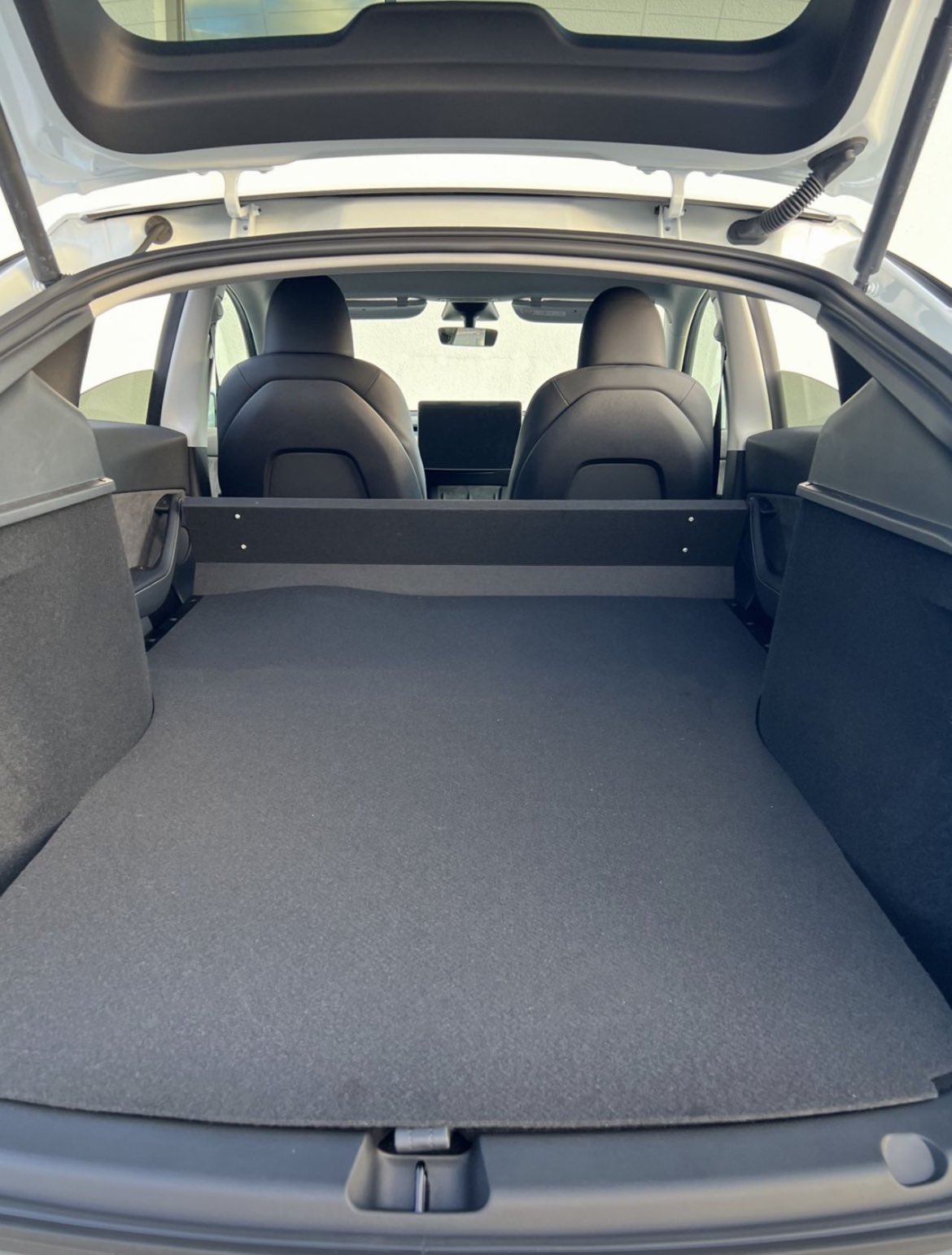Tesla Takes on the French Commercial Vehicle Market with the Model Y
In a bold move that signifies its entrance into the commercial vehicle segment in France, Tesla has announced the launch of a specially configured Model Y. This new model, designed with only two seats, offers an exceptional cargo capacity of 2,158 liters (76 cubic feet), showcasing Tesla’s ingenuity in rethinking interior space utilization. With an impressive range of 565 kilometers (351 miles) per charge, this version of the Model Y positions itself as a viable option for professionals and businesses seeking eco-friendly transportation solutions.
Furthermore, its eligibility for tax discounts, as it falls under the commercial vehicle category, enhances its attractiveness in the market. According to available information, this utilitarian Tesla Model Y will be on display in selected Tesla showrooms across France from March to July, demonstrating the brand’s commitment to making this innovation accessible and visible to a broad audience.
Implications and Why It Matters
The introduction of the Tesla Model Y into the commercial vehicle segment in France is not just a product expansion; it’s a statement of intent from Tesla, underscoring its ambition to revolutionize all facets of mobility. This move responds to a growing demand for sustainable transportation solutions, especially in urban settings where reducing carbon footprint and logistic efficiency are paramount.
For businesses, adopting this vehicle could mean substantial savings in operational costs and tax benefits, while showcasing a strong commitment to environmental stewardship. This could encourage a faster transition towards the electrification of commercial fleets and promote a positive image among increasingly eco-conscious consumers.
Personal Perspective and Broader View
While applauding Tesla’s innovation, it’s critical to place this development in the wider context of the electric commercial vehicle market, which is seeing increased competition. Brands like Renault with its Kangoo Z.E., and Peugeot with the e-Expert, are also offering electric solutions in this segment. The difference lies in Tesla’s ability to incorporate advanced technologies and superior range, elements that have become its hallmark. However, Tesla’s entry into this market could stimulate innovation and force established players to rethink their offerings to stay competitive.
In my opinion, this competitive dynamic will ultimately benefit consumers and the environment by accelerating the shift towards greener transportation solutions. The question remains: how will competitors respond to this new challenge posed by Tesla, and what additional innovations will it spur in the electric commercial vehicle market? Only time will tell, but one thing is certain: Tesla’s impact on the automotive industry continues to be felt, redefining expectations and standards with each new initiative.
